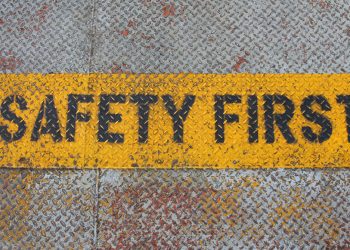Emphasizing high quality training and best practices
The Inter-American Committee on Ports (CIP) of the Organization of American States (OAS) today inaugurated the First Annual Workshop on Maritime Safety in order to strengthen the institutional capacities of the countries of the region in the area, emphasizing high quality training and the presentation of best practices, and the importance of this sector for the economic and social development of the Hemisphere.
The three-day workshop is organized in collaboration with the Maritime Administration of the Department of Transportation of the United States (MARAD) and the U.S. State Department through the country’s Permanent Mission to the OAS. The event features the participation of representatives of port authorities from 18 member states, and is being held at OAS headquarters in Washington, DC.
During the inauguration, the Executive Secretary for Integral Development (SEDI) of the OAS, Sherry Tross, stressed the importance of maritime safety, stating that the majority of world trade is conducted through ports and their logistics networks. “The fact that the maritime industry and ports are the main nodes in the global physical network of shipping that manages more than 80% of goods worldwide, should be enough to warrant close attention to this most important issue,” she said.
Executive Secretary Tross stressed the importance of strengthening institutional capacity through high quality training and the sharing of best practices in the area of port safety among OAS member states. In addition, the SEDI leader said “ports and the maritime industry contribute significantly to sustainable economic development and social equity and welfare.” “Together with a network of efficient transport,” she added, “ships and ports are prerequisites for social inclusion in the main economic activities and in access to services“.
“The development of safe, sustainable, and competitive maritime and ports sectors in the Americas has an impact on trade and the socio-economic development of OAS member states,” said Secretary Tross, and adding that they “promote social welfare and contribute to the strengthening of democracy.“
For his part, Paul Jaenichen, Acting Administrator of the Maritime Authority of the United States (MARAD), emphasized the importance of standards and regulations in the area of maritime safety. “Our community is not immune to accidents or tragedies,” said Jaenichen and, as an example, recalled the sinking in 2002 of the Prestige oil tanker off the coast of northwest Spain; the Costa Concordia cruise ship accident near the coast of Italy in 2012 which killed more than 30 people; and the recent sinking of the Sewol ferry in South Korea which led to the loss of some 300 victims.
Jaenichen noted that these accidents were caused by different causes including increased hazard by rising seas, poor mechanical maintenance, or human error. “But they all had something in common: each of them was preventable,” said the Acting Administrator of MARAD, who advocated for a standard set of safety rules in the maritime community.
For his part, the Secretary of the CIP, Jorge Durán, coincided with Jaenichen in saying “the issue of safety is important to all sectors of maritime and port activities.” In this regard, he noted that “the Secretariat of the Inter-American Committee on Ports is committed to contributing to a better development of the port sector in the Americas and one of the ways to do this is to strengthen institutional capacities.”
Secretary Duran also said “the protection of ports and their safety” is one of the six priority areas contained in the Declaration and Plan of Action of Cartagena approved by the CIP at its eighth meeting held in Cartagena de Indias, Colombia, in September 2013.
Source and Image Credit: OAS
A gallery of photos of the event is available here.




























































